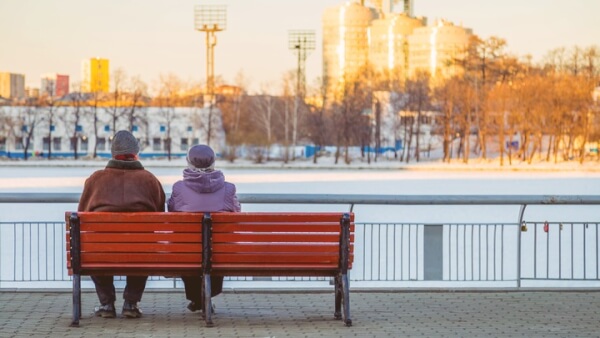How to retire to Russia: A complete guide
Whether you’re a Brit, an American or an Australian, you should consider Russia when choosing where to settle after retirement. Straddling Europe and Asia,...

One important decision, if you’re moving to Russia with family, is how to ensure that your children have the best possible education. According to the OECD, attainment in maths and science in Russian schools is better than average, with reading hitting a level on a par with other developed countries. Literacy and school attendance levels in Russia are very high, although schooling methods, which involve some traditional approaches like rote learning, aren’t exactly what you might find in more progressive systems. As an expat, you have the choice of enrolling your child into a state school, a private institution or an international school. International schools are often arranged in some way by embassies, and may offer the syllabus and exam system of your home country.
If you’re considering your options, you can compare the standard of education in Russia with that available in your home country, with the PISA assessment framework from the OECD.
Whether you’ve already got your Russian work visa and have your move fully planned, or are just starting to think about life overseas, it helps to know a little about the education options in Russia. Here's a quick guide to get you started.
The Russian education system is explained in detail on the website of the Ministry of Education and Science.
Pre-school is optional in Russia, although many families do sign their children up for state or private kindergartens. Compulsory schooling starts aged six and runs for 11 years, after which students can choose to remain in an academic school, take vocational training or leave education entirely.
| Program | |
|---|---|
| Pre-school | Optional for ages three to sixFees are usually payable, and they’re not always sufficient government subsidised places |
| Primary School | Compulsory from age six to 10 for all childrenEducation at primary level is free |
| Secondary School | Secondary school from age 11 - 15 is mandatoryFollowing exams, students decide to remain in school to prepare for university attendance, take vocational courses, or leave education |
Pre-school in Russia isn't compulsory. Places are available for children aged between around three and six, with fees payable in privately operated pre-schools. Pre-schools aren't regulated by the central government in the same way that other levels of education are, although private kindergarten fees are capped at 20% of the operating cost of the school. There’s intense pressure on government run kindergarten spaces in some areas, as demand far outstrips supply.
From the age of six, it’s compulsory to attend primary school in Russia. Mandatory education lasts for 11 years, and is known as Basic General Education. This stage of schooling is provided free of charge.
Primary school lasts for four grades and the curriculum is broad, covering basic skills, physical education and languages. There are core areas which must be taught by all schools, and the individual institutions then add their own subjects to make up the full timetable. This means that some schools can develop a specialism in certain subject areas, and can cover subjects which are relevant to the local area but might not be core content.
Secondary education in Russia is split into two sections, with the first five years being mandatory for everyone. At the end of this period, the Basic General Education is concluded, and all students must sit national exams. The results of these exams are used to determine whether or not students should stay on at school to pursue further studies, or leave to either get a job or take a vocational course. Students who stay in a more academic school for university preparation take a further two years or three of study, to age 17 or 18.
Aside from the regular state schools, there are also specialist gymnasium and lyceum schools which might be government funded or private, and can offer a more advanced curriculum. Here the standard length of the education programme is likely to be longer than in the normal state system.
Schools design their own curriculum, which must feature the basic syllabus set out by the government, including Russian literature, social sciences, maths and physical education. For older students, there are some practical disciplines such as carpentry and sewing, and classes with a more vocational or business focus.
The school year in the Russian state system runs from the first of September through to May, although some students will have to come to school during June for exams. The year is split into four terms, with short breaks in between them. In most cases, the school day starts at around 8am, and runs until 1 or 2pm. School is open five days a week, but some schools also require students to do some extra hours of school-based study over the weekends.
It’s worth noting that this calendar applies to state schools only - in private and international schools the calendar will be locally set.
You might find that there are fees charged for pre-school and although basic general education in Russia is free, there may be costs to parents for uniforms, transport and school materials. If you don't choose the state system and decide to find a private international school, the costs are likely to be high.
Russia has a range of international schools, mainly in the major cities, teaching in English and other major world languages, and often use either the International Baccalaureate syllabus or a variant of the United States standard curriculum. There are also an increasing number of private schools offering a programme based on the Russian curriculum. To get a place in a Russian university you must graduate from a state recognised school, and not all private institutions fulfil this requirement, so it’s worth checking the credentials of any school you're considering.
International schools are generally of a high standard, and therefore typically competitive, with testing and interviews involved to secure admission. You can expect the fees to vary widely depending on the specific school and the programme they offer.
Whichever educational route you decide is best for your family, there will be costs involved, and you don’t want to pay over the odds. If you’re funding your child’s education from your account back home, consider using Wise to get the real exchange rate and cut out expensive international bank transfer fees.
*Please see terms of use and product availability for your region or visit Wise fees and pricing for the most up to date pricing and fee information.
This publication is provided for general information purposes and does not constitute legal, tax or other professional advice from Wise Payments Limited or its subsidiaries and its affiliates, and it is not intended as a substitute for obtaining advice from a financial advisor or any other professional.
We make no representations, warranties or guarantees, whether expressed or implied, that the content in the publication is accurate, complete or up to date.

Whether you’re a Brit, an American or an Australian, you should consider Russia when choosing where to settle after retirement. Straddling Europe and Asia,...